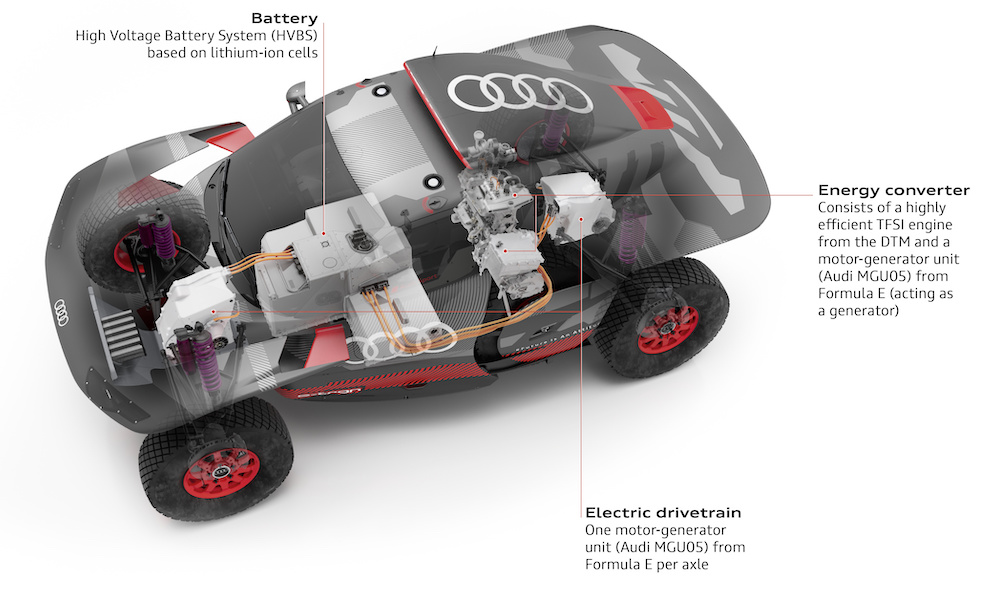At the third time of asking, Audi claimed its first overall victory at the Dakar Rally with the innovative Audi RS Q e-tron. Carlos Sainz and Lucas Cruz became four-time winners of the gruelling desert event despite not winning a stage, but their superior reliability enabled them to claim a breakthrough triumph for a hybrid car.
The Audi Dakar project that prevailed in the sands of Saudi Arabia this month has evolved considerably since it was launched in 2020. The initial focus was on being the first vehicle to compete with electric drive, but in the second year, attention switched to improving the efficiency of the powertrain and running on renewable fuel.
For the 2024 edition the main key words were safety, improved reliability, comfort and further developing the performance have been the main drivers, building on the well-designed concept and development done in the previous years.
Click here for more in-depth stories about off-road racing technology
The car is a unique type of hybrid, running on electric power to the axles, while the battery is range extended through the use of a four-cylinder, 2.0-litre internal combustion engine taken from the manufacturer’s DTM Class 1 project. The TFSI engine operates at between 4500 and 6000rpm, due to its relatively light workload, and has a consumption well below 200g/kWh.
The axles are driven by motor generator units taken from the company’s Formula E single seater, only slightly modified to power the Dakar racer. There is one motor on each axle, and a third that is part of the energy converter, which recharges the high-voltage battery while driving.
The target for the first year was just to complete the rally, and that was achieved using a battery that weighed over 300kg and had a capacity of 52kWh. The best Audi finished a respectable ninth overall. The following year, Audi and its factory Q-Motorsport team upgraded the car with a wider cockpit, re-shaped bodywork and reworked airflow through the engine bay. Despite those alterations, the best car only managed to finish 14th.
Hungry to finally bank a high finish, Audi went further in its development for 2024. With the powertrain hardware well established, and a new technical director providing fresh eyes on the programme, the team had lofty expectations on which it ultimately delivered.
The RS Q e-tron underwent…
Click Here to Read the Full Original Article at Racecar Engineering…

